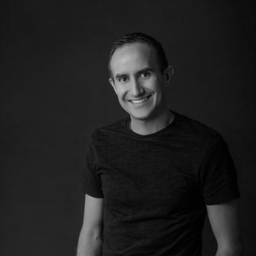
Morgan Housel
Host at The Morgan Housel Podcast
@collabfund, author, director at Markel Group. Nice to see you.
Articles
-
2 weeks ago |
buff.ly | Morgan Housel
A boy once asked Charlie Munger, “What advice do you have for someone like me to succeed in life?” Munger replied: “Don’t do cocaine. Don’t race trains to the track. And avoid all AIDS situations.”It’s often hard to know what will bring joy but easy to spot what will bring misery. Building a house is complex; destroying one is simple, and I think you’ll find a similar analogy in most areas of life. When trying to get ahead it can be helpful to flip things around, focusing on how to not fall back.
-
2 weeks ago |
collabfund.com | Morgan Housel
A boy once asked Charlie Munger, “What advice do you have for someone like me to succeed in life?” Munger replied: “Don’t do cocaine. Don’t race trains to the track. And avoid all AIDS situations.”It’s often hard to know what will bring joy but easy to spot what will bring misery. Building a house is complex; destroying one is simple, and I think you’ll find a similar analogy in most areas of life. When trying to get ahead it can be helpful to flip things around, focusing on how to not fall back.
-
2 weeks ago |
onet.pl | Morgan Housel
„Niezmienne prawdy. Ponadczasowe lekcje o podejmowaniu ryzyka, wykorzystywaniu szans i sztuce dobrego życia” ŚWIAT WISI NA WŁOSKU Jeśli wiesz, gdzie byliśmy, zdajesz sobie sprawę, że nie mamy pojęcia, dokąd zmierzamyPoważną lekcją płynącą z historii jest uświadomienie sobie, jak bardzo świat wisi na włosku.
-
1 month ago |
fool.com | Andy Cross |David Meier |Mary Long |Morgan Housel
In this podcast, Motley Fool analyst David Meier and host Mary Long discuss:Target's off-the-mark results. Lessons from TJX Companies' under-the-radar CEO. What caused David to do a double-take when listening to Palo Alto Networks' earnings call. Then, author Morgan Housel joins Motley Fool Chief Investment Officer Andy Cross for a conversation about investment decision-making and the psychology of spending money.
-
2 months ago |
collabfund.com | Morgan Housel
Thirty-seven thousand Americans died in car accidents in 1955, six times today’s rate adjusted for miles driven. Ford began offering seat belts in every model that year. It was a $27 upgrade, equivalent to about $190 today. Research showed they reduced traffic fatalities by nearly 70%. But only 2% of customers opted for the upgrade. Ninety-eight percent of buyers preferred to remain at the mercy of inertia. Things eventually changed, but it took decades.
Try JournoFinder For Free
Search and contact over 1M+ journalist profiles, browse 100M+ articles, and unlock powerful PR tools.
Start Your 7-Day Free Trial →X (formerly Twitter)
- Followers
- 559K
- Tweets
- 20K
- DMs Open
- No

Jerry Seinfeld made the point that before the 1980s it was almost impossible for young people to get rich, so if you had a career choice you gravitated towards the coolest and most impactful jobs. https://t.co/XgaHmrk906

how do young people get rich besides crypto

.@jimmycarr: In your 20s you worry about what everyone thinks of you. In your 30s you say “I don’t care what anyone thinks of me.” In your 40s you realize they weren’t thinking about you the whole time.

Very Bad Advice https://t.co/W8Z4ayAj2J